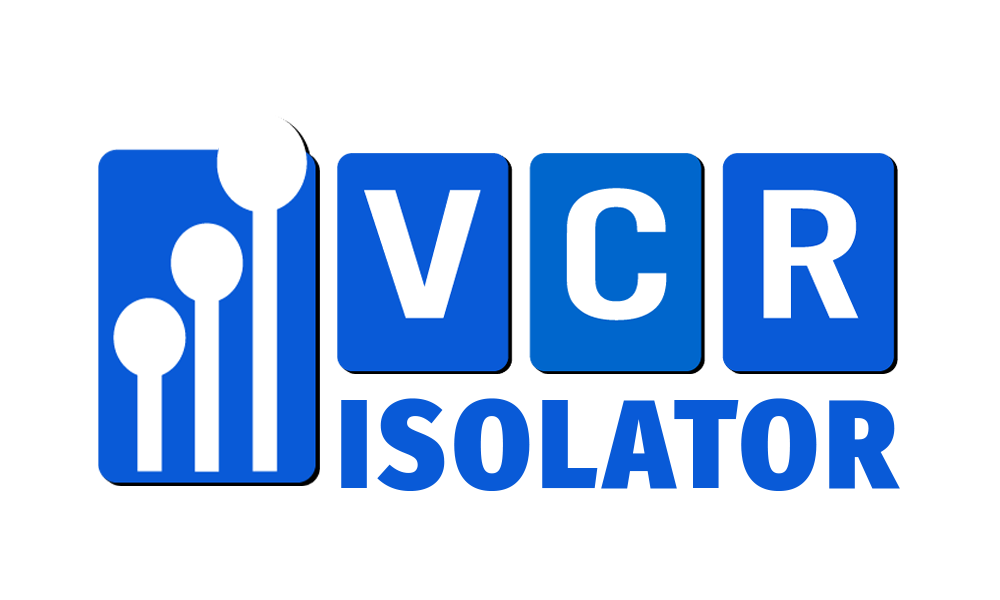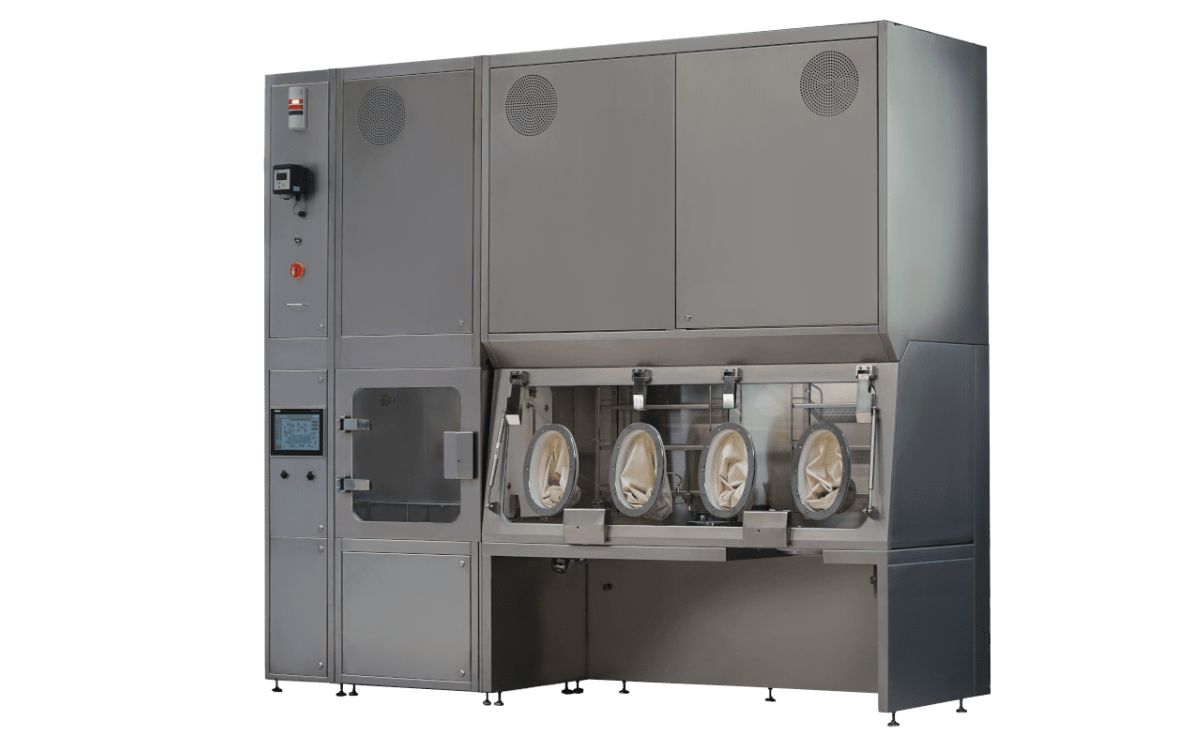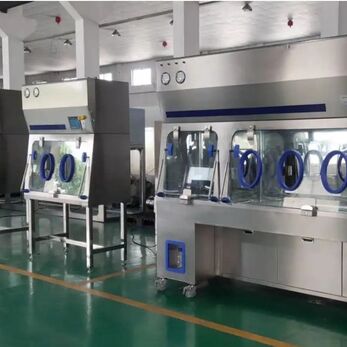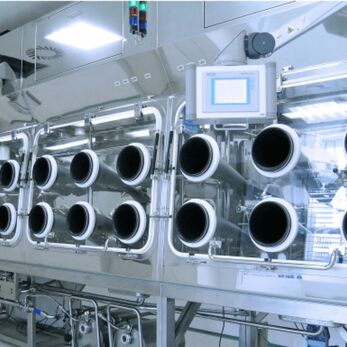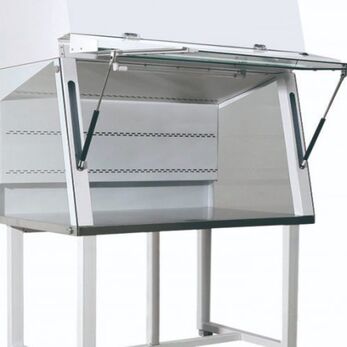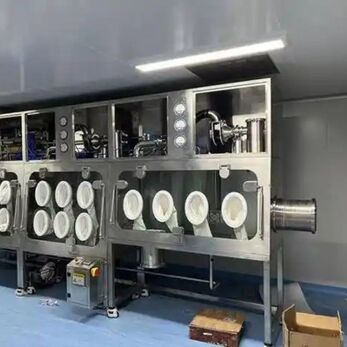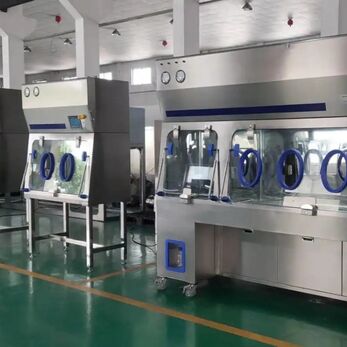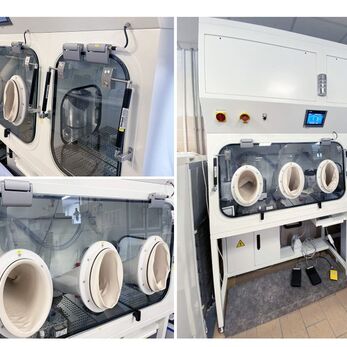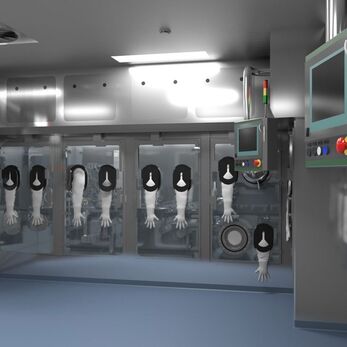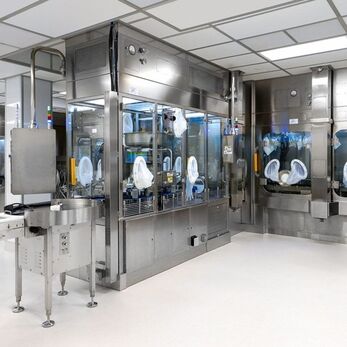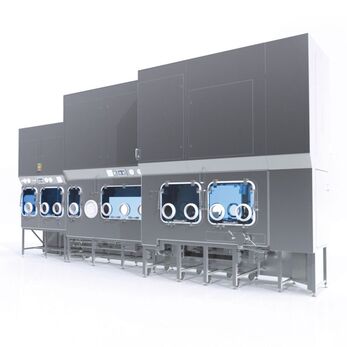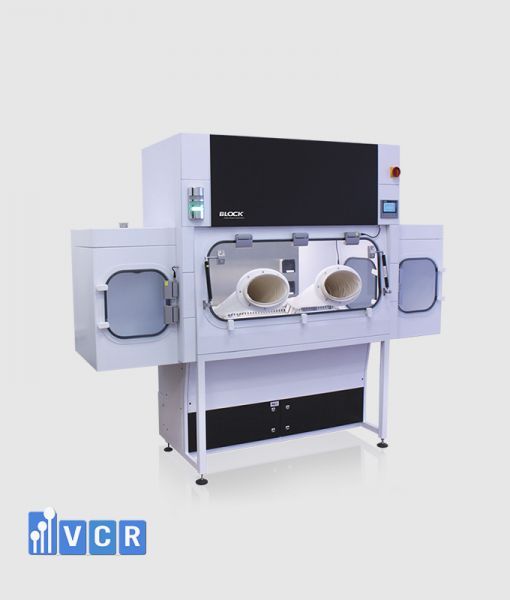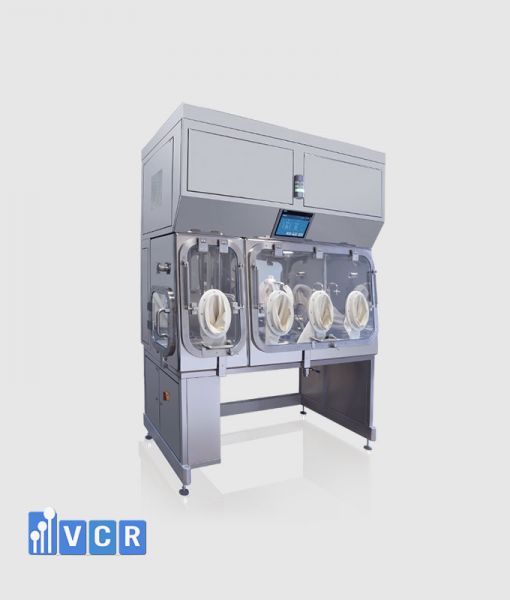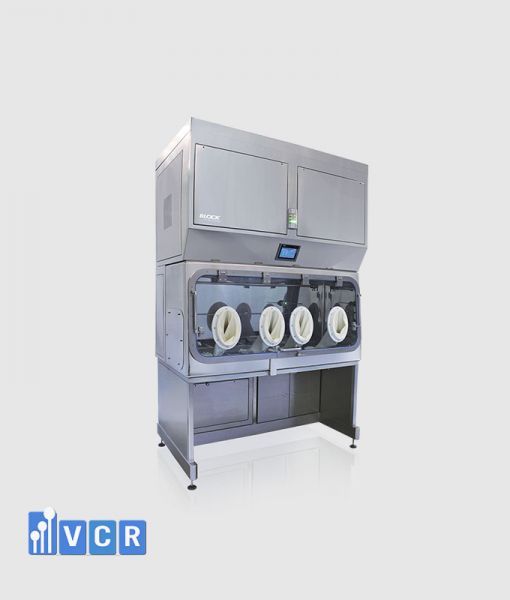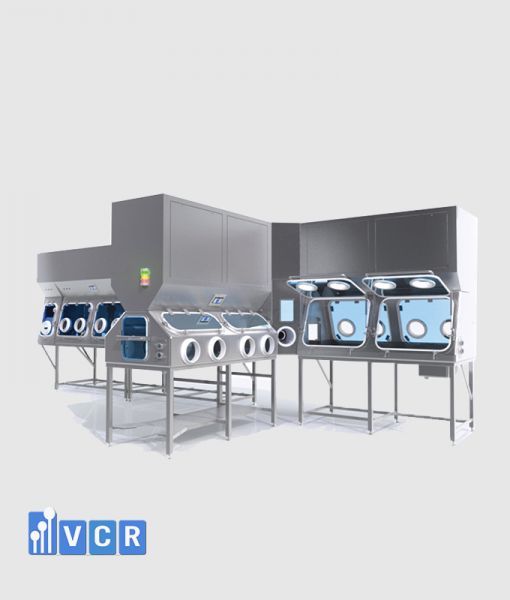Isolator is a sterile isolation device that helps control microorganisms and prevent cross-contamination in food production. This solution creates an absolutely clean environment, protecting products from dust and bacteria, meeting HACCP, ISO 22000, FDA standards — ensuring safety and quality for the production line.
- 1. What is an isolator? Why is it needed in food production?
- 2. Benefits of using an isolator in food production
- 3. Types of isolators suitable for the food industry
- 4. Criteria for choosing a trustworthy isolator supplier
- 5. Why VCR is the leading choice for supplying isolators to the food industry
- 6. FAQ - Frequently asked questions about isolators in the food industry
1. What is an isolator? Why is it needed in food production?
Isolator – A sterile environment control enclosure
An isolator is a sealed device designed to create a sterile environment completely isolated from the surrounding air. Inside, it is maintained under positive or negative pressure, includes HEPA filtration, and often integrates an automatic sterilization process (e.g. hydrogen peroxide vapor), helping to eliminate harmful microorganisms and prevent cross-contamination during operations.
In food production - especially for products prone to microbial contamination like dairy, confectionery, nutritional foods - the isolator serves as a “sterile shield” protecting the product from pathogens, dust, or bacteria from the environment and personnel.
Why is an isolator important in food production?
The food industry is strictly regulated in terms of food safety and hygiene. Even a small mistake during sampling, filling, or packaging can lead to microbial contamination - with serious health consequences and brand reputation damage.
Using an isolator in food industry helps:
-
Prevent microbial cross-contamination among personnel, product, and environment
-
Improve quality control in critical areas such as ingredient sampling, formulation, and testing
-
Comply with HACCP, ISO 22000, FDA standards
Comparing isolators with traditional equipment
| Criterion | Clean Bench | Biological Safety Cabinet (BSC) | Isolator |
|---|---|---|---|
| Sterile protection level | Low - one-way filter flow | Medium - recirculating filter | High - fully enclosed environment |
| Protection from operator contamination | None | Partial | Nearly absolute |
| Application for food industry | Limited | Some use | Highly suitable |
| Long-term effectiveness | Low | Medium | High |
In summary: while clean benches or BSCs may be adequate for general operations, isolators are the optimal solution for microbial control in modern food factories, especially under stringent hygiene and quality requirements.
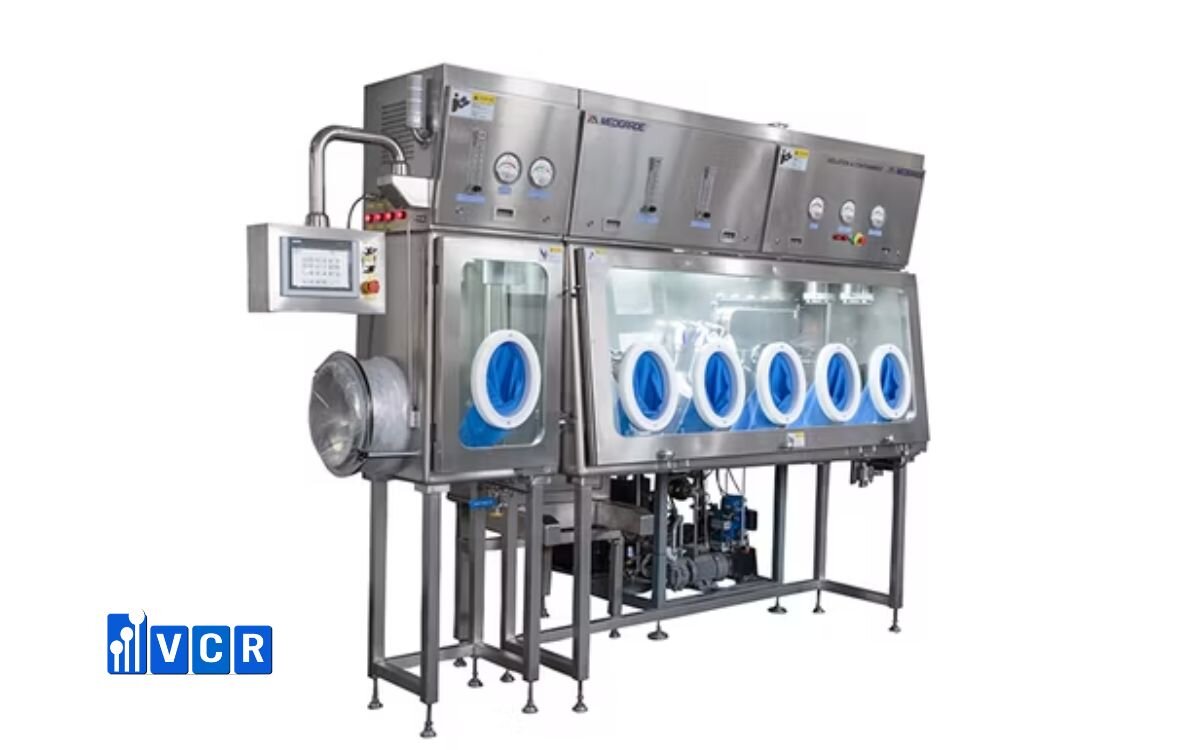
Read more: Key Considerations When Selecting a Pharmaceutical Isolator
2. Benefits of using an isolator in food production
Applying isolators not only allows food factories to effectively control microbial contamination but also brings strategic advantages in quality, cost, and brand reputation:
Compliance with food safety standards: HACCP, ISO 22000
The isolator creates a closed, sterile working environment - a crucial factor for meeting international standards like HACCP (Hazard Analysis and Critical Control Points) and ISO 22000. With an isolator, food businesses can more easily obtain certification from domestic and international testing organizations.
Minimize microbial cross-contamination risk
The isolator limits contact between the product and the external environment via:
- Fully enclosed chamber
- Fixed glove ports for operator manipulation
- High-efficiency HEPA filtration
- Automatic sterilization by H₂O₂ vapor
This is especially effective in sampling, filling liquid foods, or quality testing.
Long-term cost savings
Although the initial investment is relatively high compared to conventional equipment, businesses can:
- Reduce product rejects or spoilage due to microbial contamination
- Limit costs of product recalls
- Save on complaint handling and legal risk
The total cost of ownership over 3–5 years can be lower.
Enhanced trust from customers and regulatory bodies
A production line using isolators demonstrates serious investment in quality and hygiene. This provides:
- A clear competitive advantage
- Greater confidence from consumers and distribution partners
- Easier passing of inspections from health authorities
Read more: Isolators: Enhancing Aseptic Processing in the Pharmaceutical Industry
3. Types of isolators suitable for the food industry
An isolator is not a “one-size-fits-all” device. Depending on specific production steps, factories must select isolator types with appropriate configurations and functions. Below are some of the most popular and effective types:
Isolator with HEPA filtration & H₂O₂ sterilization
Equipped with:
- HEPA filters that remove particles and microorganisms down to ~0.3 micrometers
- Automatic sterilization via hydrogen peroxide vapor before each production cycle
Ideal for high-sterility zones such as formulation, filling of nutritional foods, powdered milk, or bottled foods
Glove port isolator
This type features:
- Fully enclosed chamber
- Fixed glove ports (manipulation gloves) allowing operations inside without opening doors
Great for reducing cross-contamination from personnel - a common source of microbial contamination in food lines.
Specialized isolators per production stage: filling, sampling, testing
Many factories choose dedicated isolators for each area to optimize performance and cost. Examples:
| Isolator Type | Specific Application | Notable Features |
|---|---|---|
| Sampling isolator | Raw material sampling & analysis | Reduces contamination from ambient |
| Filling isolator | Filling liquid or powdered food products | Ensures sterile contact in filling processes |
| Testing isolator | Microbiology labs, QC rooms | High cleanroom class, e.g., Class A |
Using the right isolator for each stage enhances productivity and reliability across the quality control process.
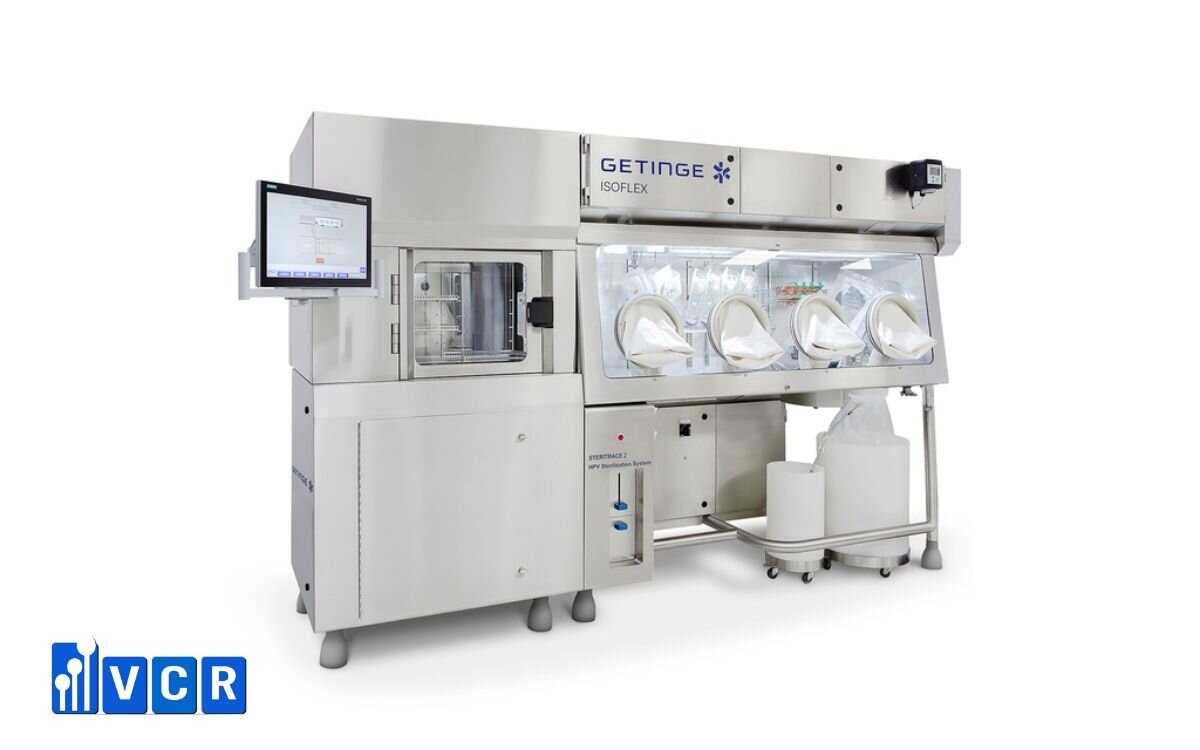
Read more: Latest price list of Isolator used in food factory
4. Criteria for choosing a trustworthy isolator supplier
Investing in isolators goes beyond purchasing the device - it is a long-term solution requiring a provider with expertise and responsibility. Key criteria include:
Experience in food industry projects
Food industry needs differ from pharmaceuticals or electronics - from cleanable surfaces to integration with existing lines. The supplier should:
- Understand food manufacturing processes
- Have real project references in food, beverage, dairy, supplements, etc.
Equipment meeting EU GMP, ISO standards
The isolator quality must satisfy:
- EU GMP standards for cleanroom and sterile equipment
- ISO certifications (e.g. ISO 14644, ISO 22000) relevant to clean environments and food safety
This ensures easier regulatory compliance.
After-sales service & routine maintenance
An effective isolator needs periodic maintenance, calibration, and filter replacement. A reputable provider offers:
- Clear warranty policies
- Planned maintenance every 3–6 months
- 24/7 technical support when issues arise
Professional installation & training team
Installing an isolator requires technical skill and clean environment knowledge. The provider should have:
- Skilled engineers with certified training
- Clear operational guides and technology transfer
- Collaboration in acceptance testing and measurements after installation
Ability to design custom solutions
Each factory has unique layout, processes, and standards. The isolator supplier should be able to:
- Customize design per floorplan, product type (powder, liquid, capsules…), sterility level
- Integrate with existing equipment
- Ensure feasibility and operational efficiency in actual deployment
Read more: Compounding Aseptic Isolators: Navigating the Evolving Regulatory Landscape
5. Why VCR is the leading choice for supplying isolators to the food industry
As food factories in Vietnam increasingly focus on microbial control, VCR prides itself on providing high quality solutions tailored to both international standards and local manufacturing conditions. Reasons why many large food enterprises trust VCR:
Official distributor of European isolator brands
VCR currently represents and distributes many European cleanroom and isolator brands in Vietnam - countries known for strict technical standards.
- The devices provided by VCR comply with EU GMP, ISO 14644, EN 1822
- Material quality, durability, and microbial filtration performance are strictly verified
Deep understanding of food production - practical consulting
Unlike suppliers for pharmaceuticals or electronics, isolators for food require:
- Surfaces that are easy to clean, non-stick to food materials
- Integration into existing packaging lines
- Compliance with HACCP, ISO 22000
VCR’s engineering team has consulted for many domestic food factories, understanding each process step to propose effective isolator solutions without waste or excess.
Diverse real-world projects with proven results
VCR has implemented isolators for factories including:
- Confectionery - isolator for sampling and microbial testing
- Dairy and nutritional food factories - integration of sterile filling and packaging isolators
- Beverage plants - isolators in cold filling zones
In all projects, VCR supports the full cycle from survey, installation to maintenance.
Comprehensive after-sales support
With the motto “Not just selling equipment, but providing turnkey solutions,” VCR commits to:
- Clear warranties and 24/7 technical support
- Operator training, documentation handover
- Supplying genuine spare parts and filters
- Proactive maintenance schedules to ensure long-term stable operation
When you choose VCR, you’re not just purchasing an isolator - you’re investing in a system that safeguards product quality and brand reputation in the long run.
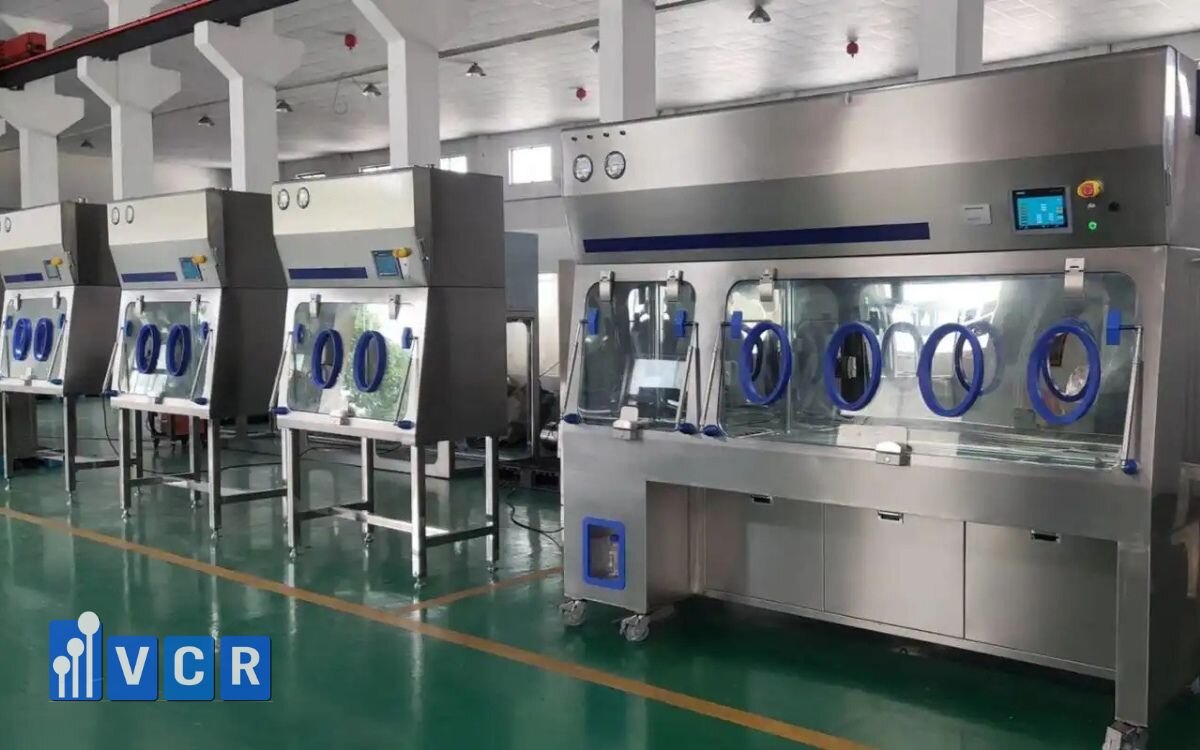
Read more: Cleanroom Isolators: Enhancing Aseptic Processing
6. FAQ - Frequently asked questions about isolators in the food industry
Q: Is an isolator mandatory in food production?
A: Currently, Vietnamese law does not require isolators in the food industry. However, for factories aiming for HACCP, ISO 22000 certification or export markets, an isolator is the most effective solution to ensure sterile processes, reduce cross-contamination risk, and pass strict inspections.
Q: Is the investment cost for an isolator high?
A: Yes, the initial cost is relatively high compared to conventional equipment. But this is a long-term investment that can:
-
Reduce product losses or rejects due to contamination
-
Lower recall risks
-
Increase operational efficiency and equipment lifetime
The total cost of ownership over 3–5 years can be lower.
Q: How often should an isolator be maintained?
A: Maintenance frequency depends on:
-
Operation intensity (shifts per day)
-
Sensitivity of the product
General recommendation: every 3–6 months, including: -
Checking HEPA filters
-
Calibrating pressure, temperature sensors
-
Testing chamber integrity and glove ports
VCR supplies full maintenance service by period.
Q: Can the isolator be custom designed to fit a factory’s process?
A: Absolutely. VCR can design and manufacture custom isolators based on:
-
Factory layout
-
Product type (powder, liquid, tablet…)
-
Required sterility level
-
Integration with existing lines
Customization helps optimize performance and reduce unnecessary investment.
Looking to upgrade your food production line to meet HACCP / ISO 22000 standards and eliminate microbial risks?
Let VCR help you design the right Isolator System for your factory.
Contact us now:
Hotline: 090.123.9008
Email: [email protected]
Website: https://isolator.vn/
Dat VCR


